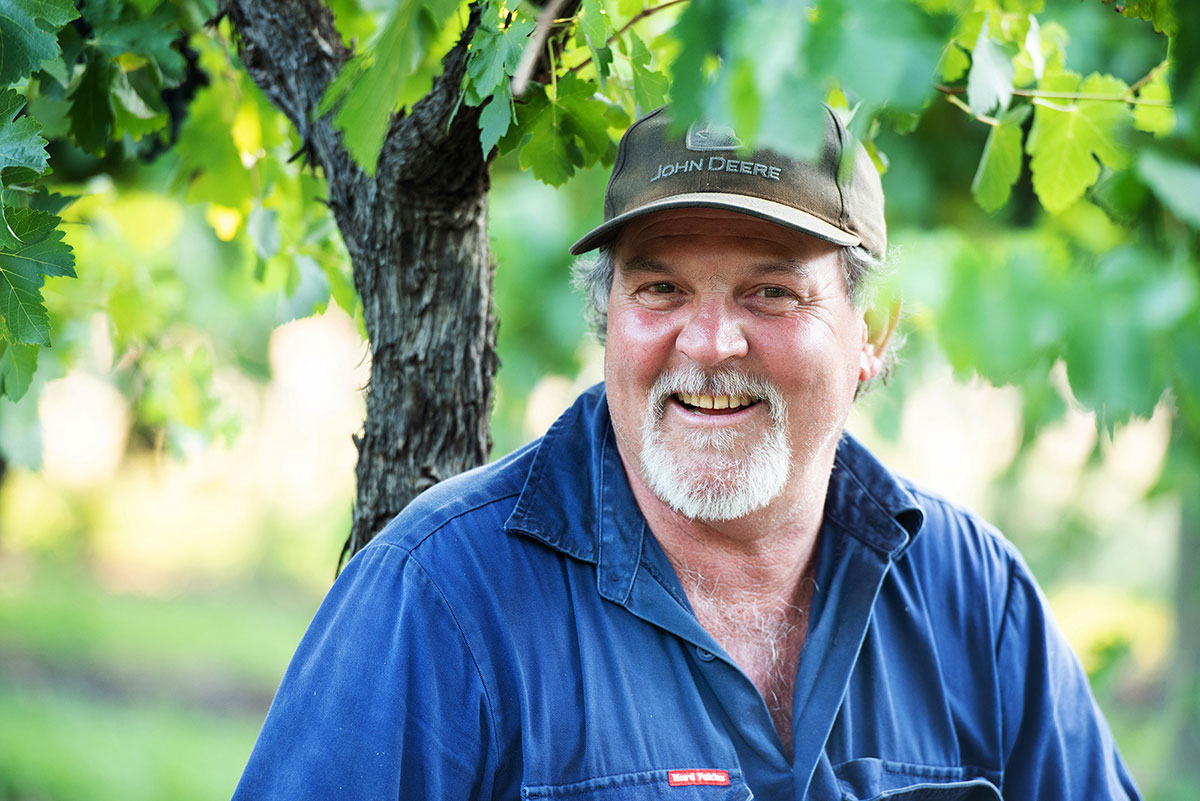
This is the story of a wool classer from Glenelg who fell in love with the beauty of the Murray River landscape and forgot to go home.
“I was twenty-eight years old, and I was the livestock manager out at Wilkadene Station when I was asked if I was interested in managing a citrus orchard. Look, I knew a lot about cattle, sheep, and horses but precious little about oranges and nothing about grapes.”
But here’s the thing: the property was located on picturesque hills in Murtho and fronted the River Murray. Across the river was scrub, dotted with majestic Red Gums that formed part of the Bookmark Biosphere Reserve. Bookmark boasts one of the largest remaining continuous stands of ancient Mallee left in the world. Because of this, it is home to a number of rare and endangered species, some of which are no longer found anywhere else on earth. And this is Mark Lucas’ backyard, his ‘playground’.
“Backpackers at his Riverland vineyard wake up and share breakfast with forty or fifty well-mannered kangaroos, in arms’ reach of koalas and echidnas.”

After working as the manager at Mootooroo for 18 years, the property was placed on the market and Mark put together a consortium to buy the property outright. That was 13 years ago and it was the beginning of the adventure.
Mark Lucas does not describe himself exclusively as a grape grower for a family wine company that produces premium Australian wines. He struggles at first with a title, but settles on ‘a mixed horticulturalist’.
The cuttings for his 11 acres of premium Shiraz grapes came from Peter Lehmann in the Barossa. They have an excellent ‘bloodline’ as Mark traces the lineage back in time, but inevitably the Riverland’s unique terroir creates deep, dark colour, with small bunches, producing small berries of intense, good flavour.
Like Mark himself, Shiraz is very much at home in this Riverland wine region. While other varieties tend to struggle a bit, this year’s vintage saw a light crop which assisted even ripening and produced deep flavour.
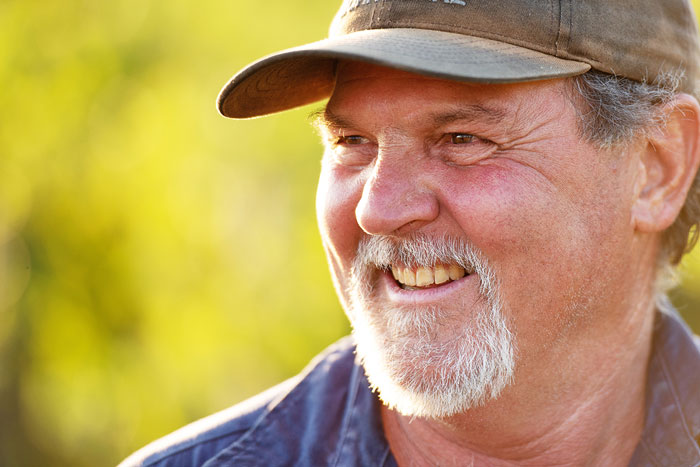
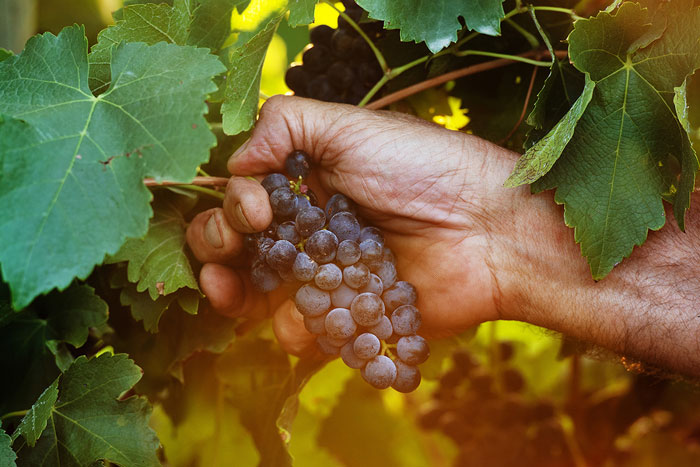
The unique terroir that underpins Mark’s Shiraz grapes so well also produces a unique environmental context and habitat that supports Mark’s other products. Thirty to forty acres support native floriculture, and four acres of this are given over to wattleseed (Acacia victoriae) production under Mark’s Australian Native Bushfood business; which produces wattleseed products for the food service sector and gourmet delis with niche products such as Wattleseed Ice Cream and Sticky Wattleseed Balsamic.
Some of the 1 tonne of roasted and ground wattleseed makes its way back to Mark’s original workplace, Wilkadene Station, where the Woolshed Brewery incorporate it into a luscious dark ale. A heady wattleseed extract is being partnered with rum at a new distillery in Northern NSW.
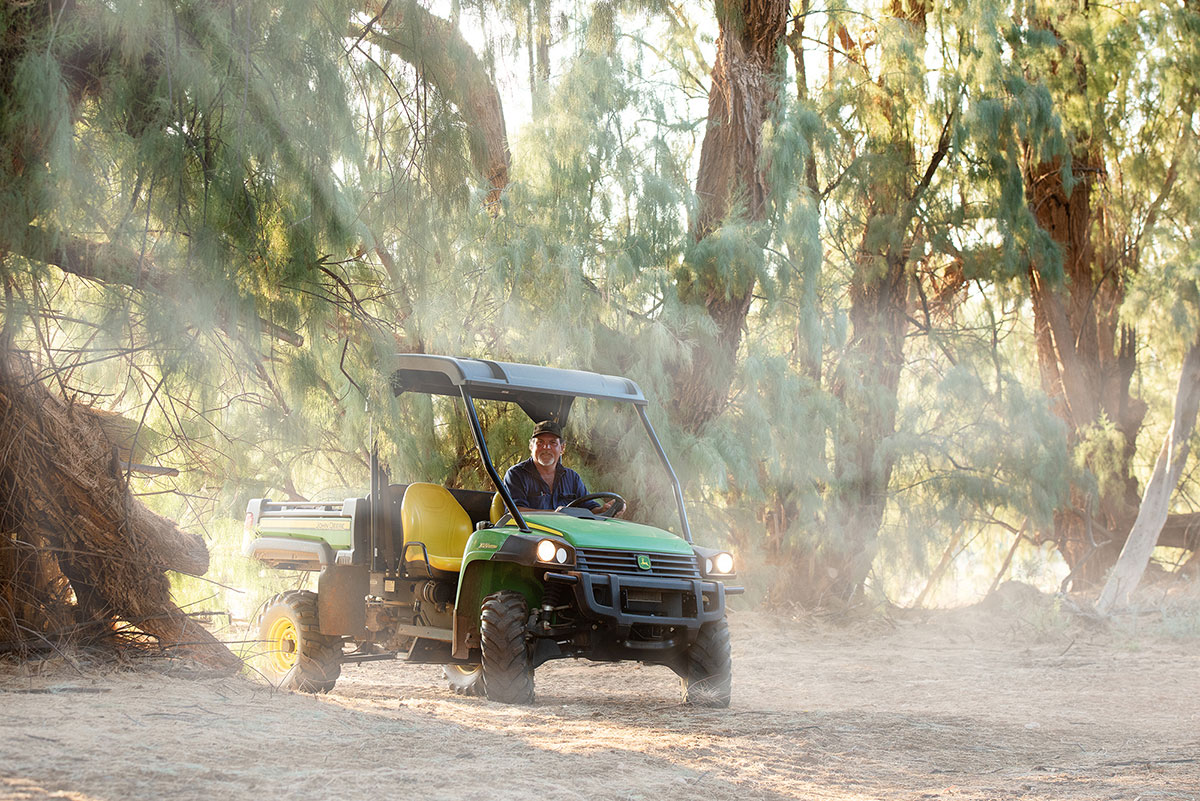
Understanding soil and land care principles means Mark studies the microclimates of his property very closely. Another crop on his distinctive Riverland vineyard is the not-so-humble old man salt bush (Atriplex nummularia). While the wattleseed does well in the alkaline red clay soils on some parts of the property, old man salt bush tolerates drought and saline soils. And it is not just sheep that find it delicious as fodder. Mark recommends deep frying the grey-green irregularly shaped leaves in Riverland olive oil, “and there you go, an organic, sustainable, salty chip”. Who knew?
“He is constantly developing sustainable alternatives to existing chemical intervention on his property.”
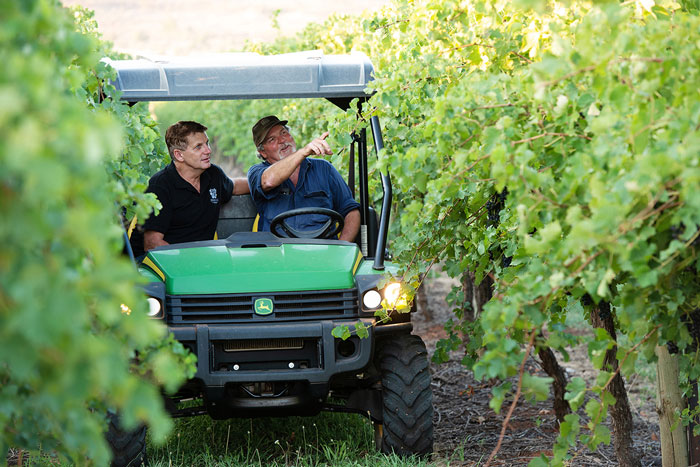
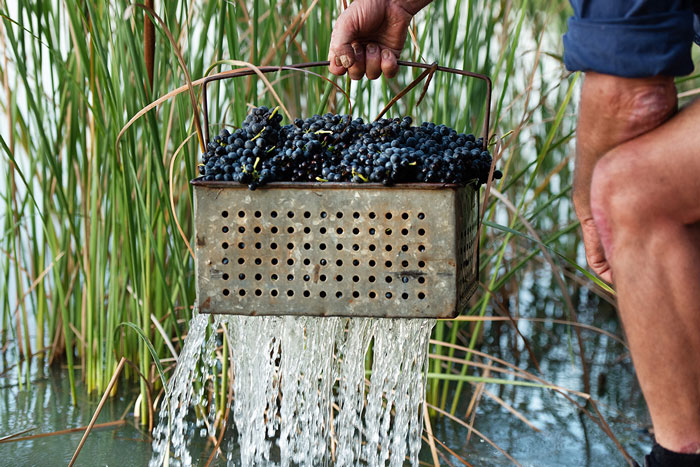
The cultivation of old man saltbush leads us back to Mark’s precious Shiraz vines. He is experimenting – growing the low-lying saltbush creeper (Atriplex semibaccata) to choke out the weeds. He is constantly developing sustainable alternatives to existing chemical intervention on his property. In the citrus orchard, as in the vineyard, he is releasing insects to keep the plants healthy and disease free; he is studying the sequestering of carbon in soil. This is a relatively natural way of removing carbon dioxide from the atmosphere with fewer impacts on land and water. It also improves moisture retention and reduces the need for expensive, hard chemicals.
Mark would be embarrassed if we called him a land care warrior but he is certainly something of a champion for the Riverland wine region. The place he fell in love with all those years ago is home for his family and his businesses. He wants to make development and growth ecologically sustainable.
At the end of the day, fishing at his secret spot, glass of Dominic Wines Shiraz in hand, he can look across the river and be proud.



